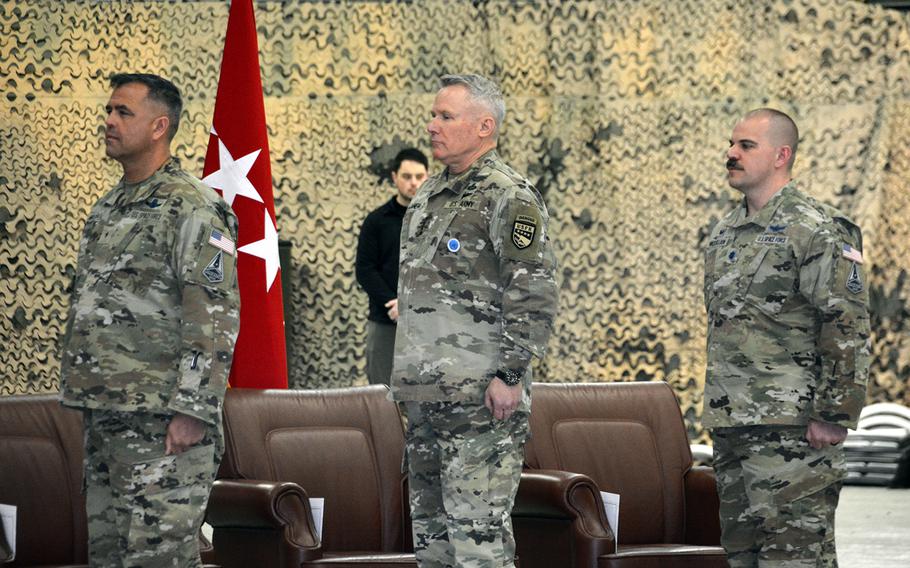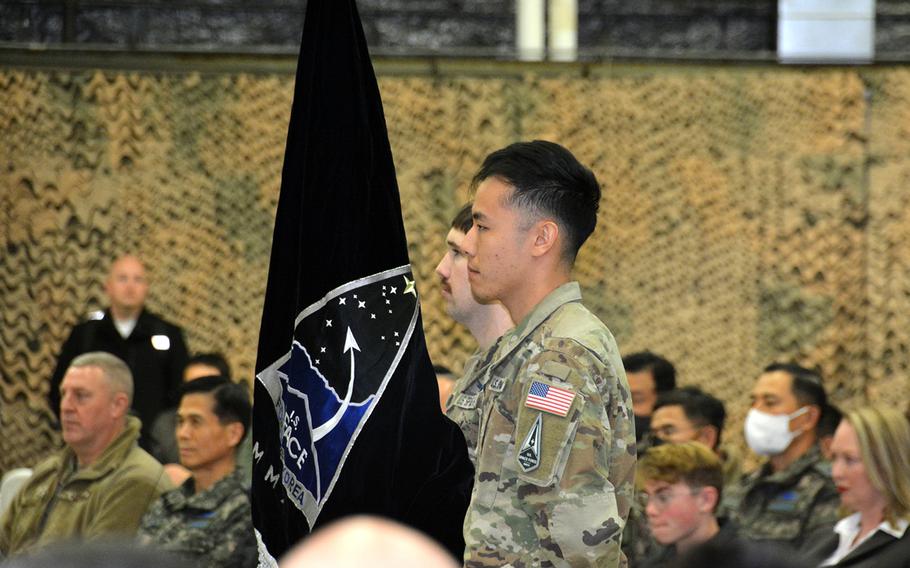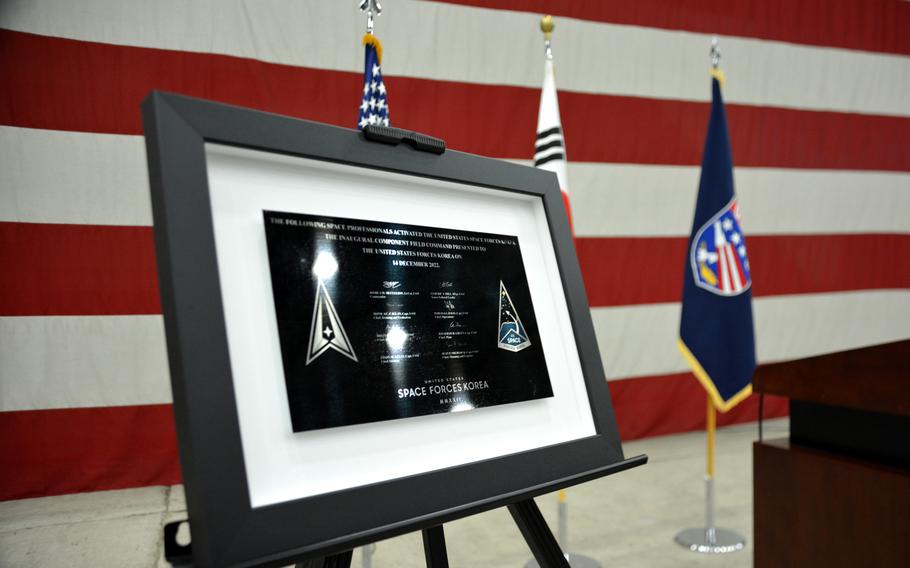
Military leaders stand at attention during an activation ceremony for U.S. Space Forces Korea at Osan Air Base, South Korea, Wednesday, Dec. 14, 2022. From left to right: Space Force Brig. Gen. Anthony Mastalir, commander of Space Forces Indo-Pacific; Army Gen. Paul LaCamera, commander of U.S. Forces Korea; and Space Force Lt. Col. Joshua McCullion, commander of Space Forces Korea. (David Choi/Stars and Stripes)
OSAN AIR BASE, South Korea — The U.S. Space Force established a new subordinate command Wednesday, its first in the Far East, to provide space planning for military leaders on the Korean Peninsula, according to statements at a ceremonial opening.
The new command represented a “powerful addition” to the U.S. military’s capability, Army Gen. Paul LaCamera, commander of U.S. Forces Korea, said in a speech during the ceremony in a weapons training hangar at Osan.
U.S. Space Forces Korea “will be tasked with coordinating space operations and services such as missile warning, position navigation and timing, and satellite communications within the region,” USFK said in a news release.
Designated SPACEFOR-KOR, the new command “enhances our ability to defend the homeland and ensure peace and security on the Korean Peninsula and northeast Asia,” LaCamera said.
The command’s patch, unveiled during the ceremony, includes symbols unique to the Korean Peninsula. A horizontal, zig-zag line on the patch represents the Demilitarized Zone separating the two Koreas; the top half of the patch represents the “infinity of space," according to a command factsheet. The tail and arrow pointing upward from the bottom half of the patch represents the command’s "consistent satellite overwatch and strike/counter strike capabilities reliant upon the space domain.”

Guardians stand at attention after unveiling the U.S. Space Forces Korea flag at Osan Air Base, South Korea, Wednesday, Dec. 14, 2022. (David Choi/Stars and Stripes)
Brig. Gen. Anthony Mastalir, commander of U.S. Space Forces Indo-Pacific, and Lt. Col. Joshua McCullion, commander of U.S. Space Forces Korea, declined to say how many personnel are serving in the command; the leaders said they are still determining how many troops the command will need.
“It’s not just about how many guardians are here on the peninsula, but the fact that we have a lot of satellites on orbit all over the world that we can continue to work with our counterparts back in the United States,” Mastalir told reporters at the ceremony. “And we have those relationships to help exploit the capabilities that we currently have on orbit.”
There was “no single event,” such as North Korea’s record number of missile tests this year or China’s international influence, that prompted the formation of the command, Mastalir said.
Staging the new command in South Korea “was a no-brainer” for the Space Force, particularly after the branch activated Space Forces Indo-Pacific at Joint Base Pearl Harbor-Hickam in Hawaii on Nov. 22, according to Mastalir.
In addition to creating its component command focused on the Indo-Pacific region last month, the Space Force also established a command dedicated to the U.S. Central Command's area of operations on Dec. 2.

A plaque commemorating the activation of U.S. Space Forces Korea is displayed at a ceremony at Osan Air Base, South Korea, Wednesday, Dec. 14, 2022. (David Choi/Stars and Stripes)
South Korean President Yoon Suk Yeol said in a speech Nov. 28 he would boost Seoul’s alliance with Washington in the space domain and “expand space security cooperation” with other countries.
Yoon, a member of the conservative People Power Party who took office in May, restarted South Korea’s large-scale military drills with the United States and promised to respond to North Korea’s provocations through displays of force.
Mastalir said the command was interested in increasing its partnership with its South Korean counterparts, particularly with missile warning and missile defense systems.
“Those conversations are ones that should take place in the coming months,” he said.